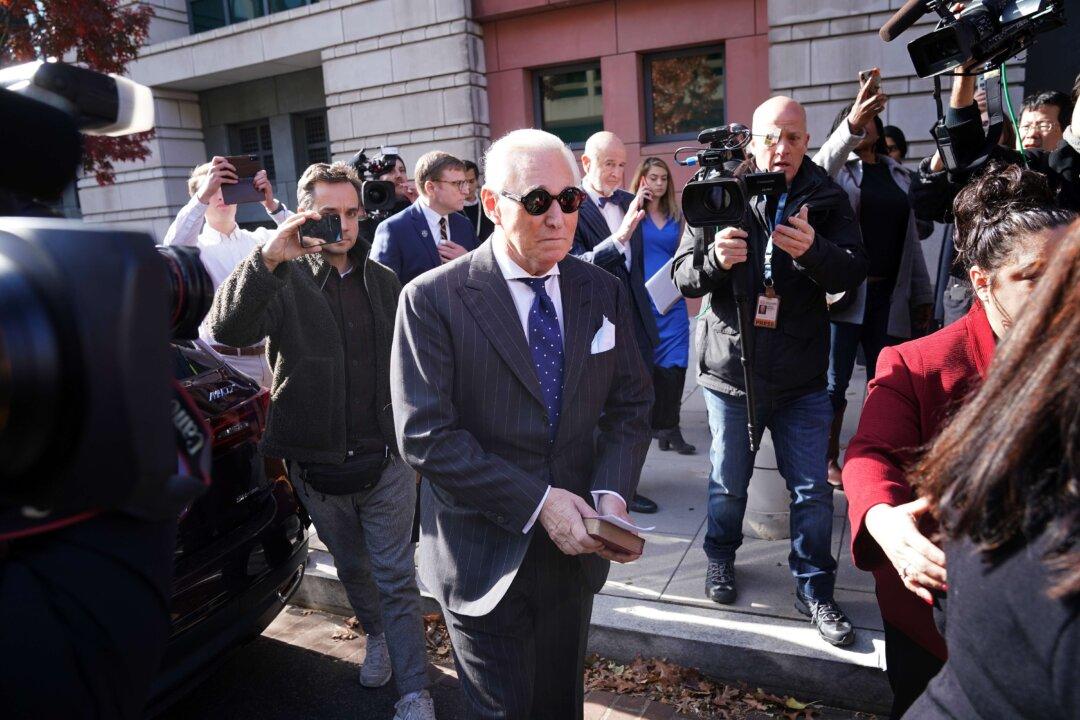Roger Stone has filed a motion asking the presiding judge to recuse herself over concerns about her partiality after she made comments praising the “integrity” of jurors during Stone’s sentencing hearing.
Attorneys for Stone, an associate of President Donald Trump, filed a motion (pdf) on Friday asking Judge Amy Berman Jackson, an Obama appointee, to recuse herself because she praised the jurors’ “integrity” before deciding on Stone’s request for a new trial that rests on the issue of whether the jurors demonstrated integrity and were impartial.




